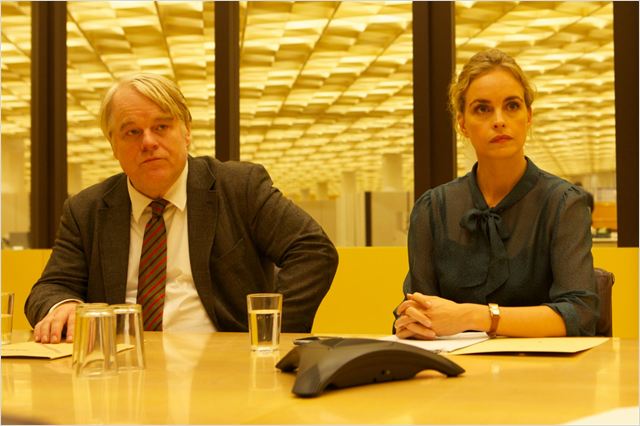
Written for the screen by Andrew Bovell
Directed by Anton Corbijn
USA/UK/Germany, 2014
Throughout the beginning of Anton Corbijn’s A Most Wanted Man, it is hard to ignore that there are only a handful of upcoming performances left from Philip Seymour Hoffman in this world. The actor’s untimely death earlier this year left a hole in the world of cinema, one that will not be filled anytime soon. Hoffman was a character actor who managed to become an A-lister, without ever losing his chameleon-like ability to channel whatever or whomever he wanted.
Günther Bachmann is more down-to-earth than other prototypical spy genre leading men, likely to flash a quick grin after a disparaging comment rather than take down an army of terrorists single-handedly. As Bachmann, Hoffman affects a German accent and an unwillingness to look anyone in the eye. Whether this gesture is meant to shield his contempt for his peers in the intelligence community is anyone’s guess. Günther holds his cards close to the chest.
His latest operation concerns a Chechen immigrant living in Hamburg illegally. Karpov (Grigoriy Dobrygin) is seeking refuge in Germany after being tortured in Russia, and his endgame remains unclear: is he merely a victim of cruel treatment, or an extremist that could ultimately lead to Günther’s primary target, Abdullah (Homayoun Ershadi)? Abdullah tours around the globe lecturing on tolerance toward Islam in a post-9/11 world, though Günther suspects other motives beyond philanthropy.
Karpov poses a huge risk to the international community. He’s spent time in Russian prisons, but it’s not apparent why, and he is set to receive an inheritance from his father that could finance a massive attack. The stakes couldn’t be higher and Günther’s agency is not the only one on the hunt. Other German agencies are attempting to pull rank and the US has taken an interest in his operation, their team being manned by Martha Sullivan (Robin Wright).
As the operation gains players in the form of human rights lawyer Annabel Richter (Rachel McAdams) and finance banker Tommy Brue (Willem Dafoe), the clock continues to tick and Günther has a limited window to make sense of it all. Like Tinker Tailor Soldier Spy, another recent film based on a John le Carré novel, A Most Wanted Man burns slow and runs at a pace that most audiences are not conditioned to expect. Gunplay is not rampant, and there are no car chases. A majority of the intel gathered by Günther and his anti-terror unit and network of sources comes from sitting, waiting and watching.
Anton Corbijn utilizes hand-held camerawork to commit to the screen not just a sense of urgency, but also the details that come from closing in on the faces of his primary actors. There isn’t a lot of action to be captured, just the observation of the sights of Hamburg, Germany and the players of international terrorism, with Corbijn carefully composing it all for our consumption.
Corbijn has already turned in a tense thriller this decade (The American), but where A Most Wanted Man transcends that effort is in its central role, dutifully occupied by Philip Seymour Hoffman. Hoffman lets the character of Günther permeate through his system to where he simply lets him inhabit his skin, becoming another disillusioned spy stuck in a system where bureaucracy and bloodlust too often trumps actual intelligence.
Hoffman has two films left in his filmography, but this is his last lead role, and what a masterful legacy he leaves. Hoffman justifies A Most Wanted Man as essential viewing on his performance alone. It simply should not be missed.
— Colin Biggs


